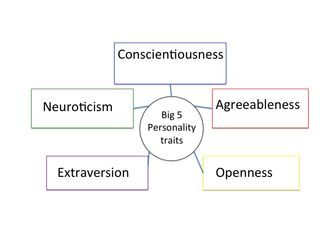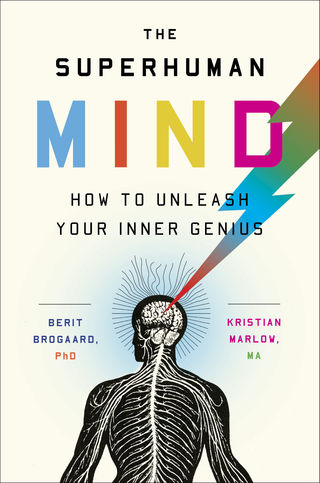President Donald Trump
The Deviant Psychologies of Donald Trump and Hillary Clinton
Mr. Big from Sex and the City is up against Patty Hewes from Damages
Posted October 29, 2016
In this video my co-author Kristian Marlow and I (The Superhuman Mind) discuss the personalities of Hillary Clinton and Donald Trump. Both in this video and elsewhere there has been a larger focus on the personality of Donald Trump, the real-estate mogul and presidential candidate often accused of narcissism or sociopathy, than on Yale law school graduate and presidential candidate Hillary Clinton. In light of this, let us have a closer look at the woman who broke the political glass ceiling.
In one episode of the television show Sex and the City Carrie Bradshaw's primary on-and-off love interest, Mr. Big (played by Chris Noth), a real-estate mogul with a big personality and little conscientiousness, is compared to Donald Trump, leaving the viewer to think he is Donald Trump. This got us thinking about which television character Hilary Clinton might be. After some discussion we came to the conclusion that she could be the brilliant, ruthless attorney Patty Hewes (played by Glenn Close) in the television show Damages.
Patty Hewes is a masterly and ferocious litigator with her own law firm Hewes & Associates, fighting for justice in a high-stakes male-dominated world of aggressive lawyers and deceitful and corrupt clients and cooperations. Her own means and method are often themselves manipulative and deceitful, perhaps partly owing to psychological abuse in her childhood. Despite of (or perhaps because of) the scars left by her sadistic father, a seemingly genuine and fair judge, Patty possesses a keen sense of justice and will do anything to take down individuals who use their positions of power to take advantage of others. Her whole career is devoted to bring down those who—like her father—secretly use their advantages to torment others.
While Patty may seem low on the scale of conscientiousness and agreeableness during the first season, a more humane personality but also a more neurotic psychology surfaces in the series' second season, where the viewers learn that Patty still deeply mourns the death of her first and only child many years after the tragic event and that Patty takes on a more caring and motherly attitude towards the young bright female lawyer Ellen Parsons (played by Rose Byrne).

Hillary Diane Rodham Clinton graduated from Yale Law School in 1973 and in 1979 she became the first female partner at Rose Law Firm. In 2000 Clinton was elected the first female senator from New York, and she was the first first lady to enter this type of political career. Before attending law school at Yale, Clinton majored in political science at Wellesley and served as president of the Wellesley Young Republicans during her freshman year. Her republican devotion was in part inspired by her father, a very conservative businessman. Unlike Patty Hewes, Clinton has a daughter who is alive and well, Chelsea Victoria Clinton. Born in 1980, she now plays a prominent role in the Clinton Foundation and Clinton Global Initiative.
Clinton and the fictional character Patty Hewes share several personality characteristics, one being their keen sense of justice and their fairly high score on a personality trait known as neuroticism. Both Clinton and Patty seem to channel their neuroticism into their work and dedication to a just society. Like Patty Hewes, Clinton is also often accused of using "underhanded and unscrupulous methods." Sometimes one is lead to believe these accusations by the television series' producers in the case of Patty and by the ongoing "media reality shows" in the case of Clinton.
One factor, among many, that distinguishes the psychologies of Donald Trump (we discuss him at greater lengths in the video) is that their tendency to blurt out things they sometimes do, or at least ought to, regret during their campaigns have different grounds. In the case of Trump his crash language, salty remarks and racist insults appear to be grounded in his low score of the scale of conscientiousness. Clinton is more conscientious in her speeches but occasionally makes regretful remarks. The latter, however, appear to have their seat in her neuroticism.

While both candidates as personas or perhaps qua politicians are acting extraverted and intellectually open to new experiences (two major traits of personality), they also differ in agreeableness. There is no doubt that Trump purposely acts like a disagreeable persona, whereas Clinton mostly comes across as agreeable. Yet her agreeableness is not always perceived as such. Many voters want to like her but they consistently hit a bump in the road. This is where Clinton perhaps is best assimilated to the fictional character Patty Hewes.
While watching Damages we want to like and emphasize with Patty Hewes but we often fail owing to the appearance of her ruthless and manipulative tactics. Psychologist Kristin Daley thinks that we likewise struggle to love Hillary Clinton. One reason Daley lists is that she broke through the glass ceiling that we women often bump our heads up against but without much struggle. Another is that Clinton has taken on the political views of her husband and has stood by his side in spite of his distasteful sexual engagement with Monica Lewinsky. A third is that Clinton doesn't always come across as having integrity. Her integrity was questioned, for instance, in the Benghazi attack, which left us questioning Clinton’s ability to handle security threats and suspecting potential cover-ups of her mistakes. She was cleared by the senate but the fact is that no charges were brought against her make. This fact may make voters attach more importance to minor factual mistakes in the presidential debates than they might otherwise have done.
When evaluating people's psychology on the basis of their media presence, the analysis is always bound to be partial at best and mistaken at worst. The main reason for this is that we all are social actors. We post our best pictures on Facebook and report on our "happy" lives. Politicians have advisors who train them to be social actors to the extreme. For all we know, Trump may be a fair boss and sentimental at heart, even though we rarely see even a small glimpse of this in the media coverage of the election. Clinton may be far less conscientious and agreeable than she lets on. Only a clinical psychologist lucky enough to get to analyze the candidates in their office will ever have a chance to find out out for sure. What matters in the election, of course, is not what Trump and Clinton's real psychologies are like but what they can do for our country, and how they will shape the world to come.
Berit "Brit" Brogaard is a co-author of The Superhuman Mind





